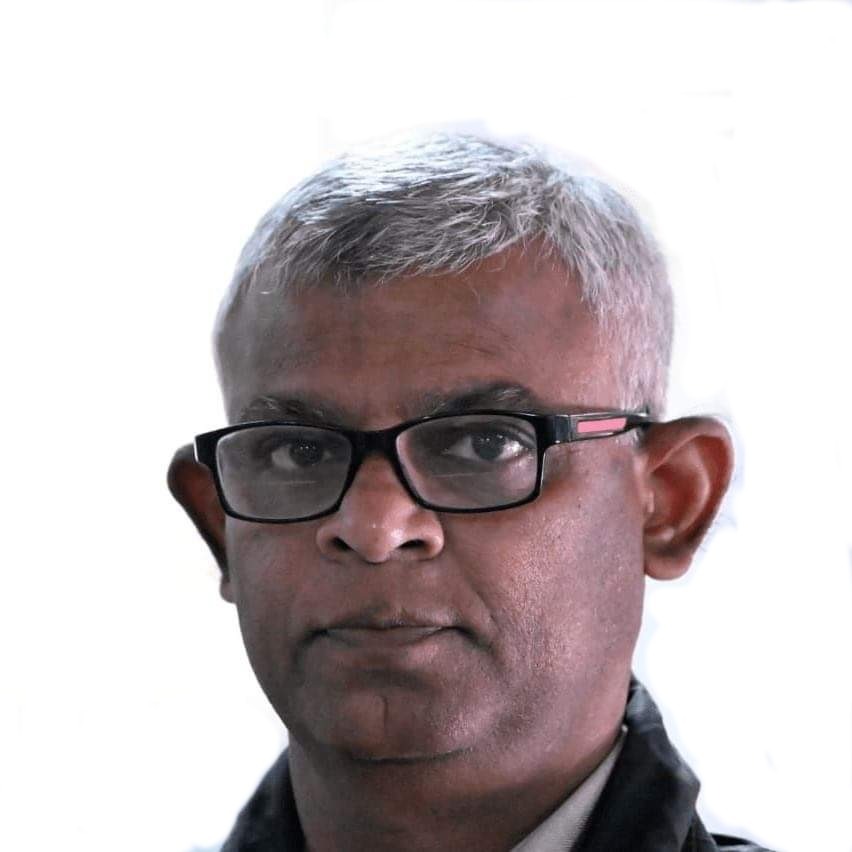In India, electoral politics often revolves around identity, caste, religion, and regionalism rather than real policy issues. Political parties often resort to identity-based appeals to unite voters and push important policy discussions, including healthcare, onto the sidelines of electoral discourse. This tendency sidelines critical issues like healthcare in favour of more emotional or divisive topics.

Niraj Krishna
Elections are approaching for the parliament in the country. Many issues, such as who will get the ticket, from where, and who is the candidate of which political party, play a role in these elections. In this election, candidates are contesting on the tickets of other parties besides leaving their own party. Ethics seem to have disappeared from the elections. Questions are being raised about the impartiality of the Election Commission, political parties, and independent candidates. The BJP versus India is a big fight. The dates for the elections have been announced. There are 970 million voters in the country.
In India, electoral politics often revolves around identity, caste, religion, and regionalism rather than real policy issues. Political parties often resort to identity-based appeals to unite voters and push important policy discussions, including healthcare, onto the sidelines of electoral discourse. This tendency sidelines critical issues like healthcare in favour of more emotional or divisive topics.
Issues like casteism, religion, poverty, wealth disparity, gender discrimination, unemployment, etc. will be seen in these elections. The speeches of leaders have crossed all limits. Leaders are ready to do anything for the sake of power. The country faces many problems. The country is grappling with issues such as farmers, labourers, unemployed people, businessmen, students, women, rich and poor, food, water, treatment, etc. Solutions are not being found, even after searching. The Constitution has given everyone the right to equality, fraternity, and justice. It has pledged to provide social, economic, and political justice to every citizen.
In the world’s largest democracy, India, elections are a spectacle of vibrant democracy where millions of people exercise their right to vote and shape the future of the country. Yet, amidst the noise of political debates and promises, an important issue often remains unclear: the deplorable state of healthcare facilities across the nation. Why don’t Indian citizens question their leaders about the poor healthcare facilities during elections?
In a diverse and populous country like India, where millions struggle with access, affordability, and quality of healthcare, one might expect healthcare to take precedence in political discussions during elections. However, despite being a matter of grave concern for citizens, healthcare often takes a backseat in electoral debates and campaigns.
India’s healthcare system has long struggled with inadequate infrastructure and resources, uneven access, and quality of care challenges. The country’s public health infrastructure often fails to meet the growing healthcare needs of its vast population, particularly rural and marginalized communities. Hospitals are overcrowded, medical staff are overburdened, and the supply of essential medicines is often inadequate. Additionally, the COVID-19 pandemic has exposed systemic weaknesses in India’s healthcare system, highlighting the need for improvement.
Firstly, immediate concerns often take precedence over long-term issues such as healthcare. In a country grappling with poverty, unemployment, and basic infrastructure deficiencies, voters may prioritize issues directly affecting their daily lives, such as employment opportunities, inflation, or access to basic amenities like water and electricity. While healthcare is undoubtedly crucial, it may not always be considered an immediate concern compared to these pressing issues.
The complexity of healthcare administration and financing diminishes its significance in electoral discussions. Healthcare involves various stakeholders, including federal, state, and local governments, as well as private healthcare providers and non-governmental organizations. The intricacies of healthcare policy and funding mechanisms may deter extensive involvement in this subject during election campaigns, as it requires nuanced understanding and long-term planning.
Furthermore, there is a widespread lack of awareness and health literacy regarding people’s rights and entitlements to quality healthcare. Many citizens, especially those in rural areas or marginalized communities, may not be fully aware of their rights or able to demand better healthcare services from their elected representatives. This lack of awareness shifts the focus away from healthcare improvements to political pressures on leaders.
In the realm of public healthcare services, government hospitals stand as pillars of hope for millions, catering to the most vulnerable sections of society with essential medical services. However, despite their noble missions, these institutions often struggle due to systemic neglect, inadequate funding, and resource shortages. Within these facilities, appointed doctors are held to high standards, exacerbating disparities between expectations and realities within the public healthcare sector.
The appointment process for doctors in government hospitals typically adheres to stringent criteria, ensuring that individuals with expected qualifications and expertise are entrusted with patient care responsibilities. However, where doctors are held to such high standards, the institutions they serve often suffer from neglect and underinvestment over prolonged periods. Government hospitals frequently grapple with numerous challenges, from inadequate basic infrastructure and equipment to shortages of essential medications and staff. This neglect not only compromises the effectiveness of medical professionals but also undermines patient care and safety.
One of the most serious challenges faced by government hospitals is the longstanding shortage of resources. Budgetary constraints often result in outdated infrastructure, insufficient medical equipment, and shortages of essential supplies. As a result, doctors and healthcare workers are forced to operate under subpar conditions, compromising their ability to provide effective and quality care.
Moreover, disparities in resource allocation between urban and rural areas exacerbate the challenges faced by government hospitals. Rural healthcare services, in particular, bear the brunt of neglect, with many lacking basic facilities and services. This geographical imbalance perpetuates healthcare inequalities, leaving communities on the fringes at a distinct disadvantage in terms of accessing quality medical care.
In summary, while healthcare is undeniably crucial, immediate concerns, administrative complexities, a lack of awareness, systemic neglect, and resource shortages contribute to its limited prominence as an electoral issue in India. Addressing these multifaceted challenges requires concerted efforts from policymakers, healthcare professionals, and civil society to prioritize healthcare reforms and ensure equitable access to quality medical services for all citizens.
Moreover, the issue of a shortage of personnel creates a significant barrier to the effective functioning of government hospitals. Healthcare professionals are often compelled to work under immense pressure due to excessive burden, leading to fatigue among patients and compromised outcomes. A shortage of essential medical personnel in critical areas such as emergency care and intensive care units further exacerbates these challenges, leaving hospitals ill-equipped to handle complex medical cases.
Neglect of government hospitals not only weakens the health and well-being of patients but also undermines public trust in the overall healthcare system. Continuous neglect of these institutions by communities that heavily rely on them undermines their fundamental rights to quality healthcare access and represents a betrayal of trust.
Governments should prioritize healthcare as a fundamental human right and allocate sufficient resources to ensure the effective functioning of public healthcare institutions. Furthermore, there is a need for greater accountability and transparency in the allocation and utilization of healthcare funds to prevent mismanagement and corruption. Empowering local communities and fostering partnerships between government agencies, non-profit organizations, and private stakeholders can also play a crucial role in strengthening public healthcare distribution systems.
Addressing the silence on poor healthcare facilities during elections requires concerted efforts from various stakeholders. Firstly, there is a need to enhance public awareness campaigns to educate citizens about their healthcare rights and empower them to demand accountability from their elected representatives. Civil society organizations and the media can play a vital role in raising awareness about healthcare issues and holding political leaders accountable for their promises.
Political parties should include healthcare improvements in their electoral manifestos and engage in substantive policy debates during campaigns. By prioritizing healthcare and presenting concrete solutions, parties can demonstrate their commitment to improving the welfare of citizens and garner public support based on real issues rather than identity politics.
In conclusion, the silence on poor healthcare facilities in Indian elections arises from a combination of factors, including competing priorities, a lack of awareness, identity-based politics, and electoral dynamics. However, addressing this silence requires concerted efforts to increase public awareness, prioritize healthcare on electoral agendas, and promote substantive policy debates in electoral processes. Only through collective action can Indian citizens hold their leaders accountable and advocate for healthcare improvements that are essential for the nation’s well-being.


